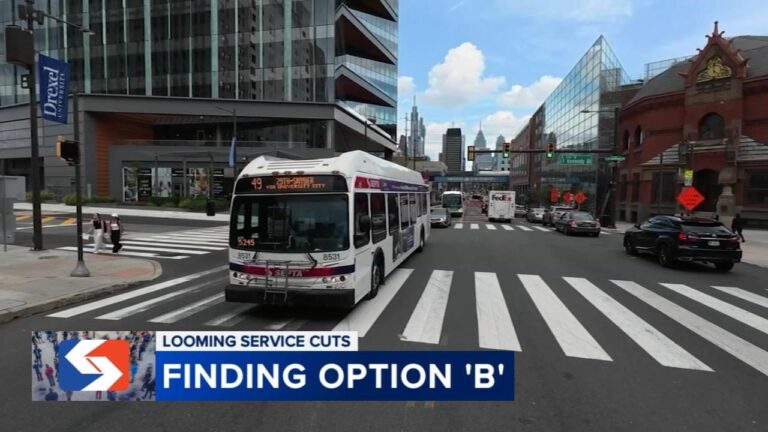Philadelphia’s SEPTA Faces Critical Challenges Threatening Regional Stability
Economic and Commuter Impacts of SEPTA’s Financial Struggles
The Southeastern Pennsylvania Transportation Authority (SEPTA) is currently navigating a severe financial crisis that extends well beyond mere transit delays. This turmoil jeopardizes the economic vitality of the Philadelphia metropolitan area, as businesses dependent on consistent commuter and customer access report declining foot traffic and sales. Small and medium enterprises, in particular, are sounding alarms about potential revenue losses that could cascade into layoffs and reduced investment throughout the region.
Major concerns stemming from SEPTA’s instability include:
- Extended interruptions in service causing significant drops in commuter efficiency
- Increased vehicular congestion as commuters shift to personal cars or rideshares
- Rising operational expenses for companies reliant on public transit accessibility
- Heightened employment barriers for economically disadvantaged populations lacking alternative transportation
| Area Affected | Expected Outcome | Estimated Timeframe |
|---|---|---|
| Daily Commuters | Travel times projected to increase by 50% | Within 3 to 6 months |
| Local Businesses | Revenue declines estimated between 20-30% | 6 to 12 months |
| Regional Economy | Potential GDP loss exceeding $200 million | One year and beyond |
Disproportionate Effects on Marginalized Communities and the Call for Equitable Transit Solutions
The operational difficulties confronting SEPTA disproportionately impact low-income and marginalized groups who depend heavily on public transportation for access to employment, education, and healthcare. Service interruptions exacerbate existing social inequities by forcing these populations into longer, costlier, and less dependable travel alternatives, further limiting their opportunities.
Specific challenges faced by vulnerable groups include:
- Extended commute durations reducing available time for work and study
- Escalating transportation expenses straining limited household budgets
- Restricted access to urgent medical and social services during emergencies
| Group | Primary Challenge | Proposed Mitigation |
|---|---|---|
| Low-Income Employees | Disrupted access to workplaces | Provision of subsidized transit passes |
| Students | Increased absenteeism due to transit delays | Enhanced frequency and reliability of routes |
| Senior Citizens | Difficulty attending medical appointments | Implementation of dedicated shuttle services |
This crisis highlights the urgent necessity for sustainable transit strategies that emphasize fairness and resilience. Investments in green infrastructure, extended service hours, and active community involvement are vital to safeguarding the mobility and well-being of those most affected. Failure to act decisively risks deepening socioeconomic disparities across Philadelphia.
Urgent Appeals for Governmental Support to Prevent SEPTA’s Service Breakdown
Transportation specialists and urban development authorities are urging immediate intervention from federal and state governments to provide critical funding and policy guidance. Without prompt and substantial support, SEPTA risks a catastrophic service failure that would severely disrupt daily travel and destabilize the local economy. Experts warn that postponing action will worsen maintenance backlogs, leaving thousands stranded and businesses without dependable transit access.
Recommended measures include:
- Emergency capital funding focused on essential infrastructure repairs and upgrades
- Strengthened state oversight to enhance operational efficiency and transparency
- Federal grants aimed at expanding capacity to accommodate rising post-pandemic ridership
- Collaborations with private sector innovators to modernize fare collection and scheduling systems
| Focus Area | Current Condition | Necessary Action |
|---|---|---|
| Rail Infrastructure | Degrading with frequent delays | $150 million in immediate repairs |
| Vehicle Fleet | Half of trains are outdated | Replacement with energy-efficient models |
| Staffing Levels | Short by 20% | Recruitment and comprehensive training programs |
Strategic Long-Term Plans: Infrastructure Renewal and Funding Innovation
Resolving SEPTA’s persistent financial and operational difficulties demands visionary strategies focused on substantial infrastructure renewal and innovative funding reforms. Experts stress the importance of modernizing aging transit assets to enhance safety, reliability, and overall rider satisfaction. This includes upgrading rail lines, rolling stock, signaling systems, and expanding maintenance capabilities. Without these investments, the risk of system failures and service interruptions will intensify, negatively impacting the broader regional economy.
To secure sustainable funding, policymakers are encouraged to diversify revenue sources beyond traditional fare collection. Potential approaches include:
- Implementing dedicated transit taxes to establish a reliable financial foundation
- Forging public-private partnerships to harness private sector expertise and capital
- Introducing congestion pricing to alleviate traffic congestion while generating transit funds
These reforms are critical to ensuring SEPTA’s long-term operational health and preventing a wider transportation crisis that would affect commuters, businesses, and the entire Philadelphia region.
| Investment Category | Estimated Cost (Billion $) | Expected Benefit |
|---|---|---|
| Rail and Vehicle Modernization | 2.1 | Improved Safety and Reliability |
| Advanced Signaling and Technology | 1.3 | Greater Operational Efficiency |
| Maintenance Facility Expansion | 0.8 | Reduced Service Downtime |
Final Thoughts: Preserving SEPTA as a Regional Lifeline
The challenges confronting SEPTA extend far beyond transportation logistics—they represent a potential catalyst for widespread disruption across Philadelphia’s social and economic fabric. As the agency contends with budget deficits and operational hurdles, the repercussions will be felt by commuters, businesses, and the broader community alike. Without timely and sustained intervention, SEPTA’s decline could trigger a domino effect, undermining regional mobility and economic resilience. Protecting SEPTA is not merely about maintaining a transit system; it is about safeguarding the essential infrastructure that supports the city’s vitality and inclusivity.


